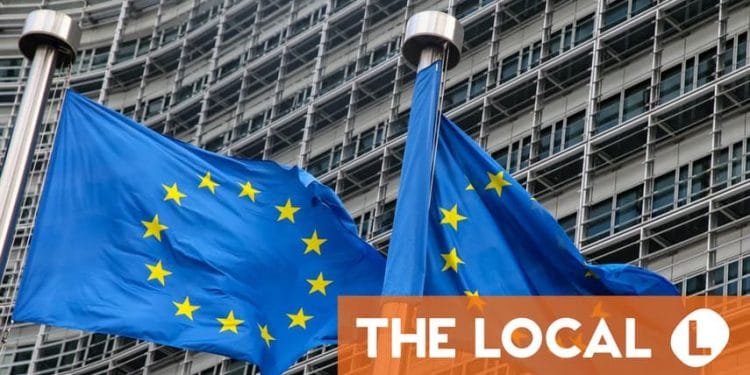[ad_1]
What is the EU “single permit”?
The EU single authorization grants third-country nationals a work permit and a residence permit for an EU country on a single application.
In 2022, 3.6 million non-EU citizens will have obtained a single permit to reside and work in the EU, according to the European statistics agency Eurostat. Nearly half (48.8 percent) of permits were issued for professional reasons. France, Spain, Italy and Portugal together issued 63 percent.
It was designed to simplify access for people coming to work in the EU. It also aims to ensure that license holders are treated on an equal footing with citizens of the country in which they live in terms of working conditions, education and training, recognition of qualifications, etc.
READ ALSO: What is the EU ‘single permit’ for third-country nationals and how to get one?
So what exactly will change?
Workers who move to the European Union with the EU “single permit” will no longer be tied to the employer who sponsored them, but they will be able to change jobs under certain conditions, based on new rules adopted by the European Parliament.
The European Parliament has now approved by a large majority (465 votes for, 122 against and 27 abstentions) an update of the directive which regulates the single permit, adopted for the first time in 2011.
The changes concern people who move to the EU with the aim of working there.
Advertisement
According to the new text, it will be possible for holders of a single permit to change employer, profession and sector of work, upon simple notification of the new employer to the competent authorities. National authorities will have 45 days to object to the change.
EU states will also have the option to require a period of up to six months during which the single permit holder must remain with the first employer. A change during this period would, however, be possible if the employer seriously violates the employment contract, for example by imposing exploitative conditions.
Javier Moreno Sanchez, the Spanish MP in charge of the change, said: “The revision of the Single Permit Directive will help workers from third countries reach Europe safely and European companies find the workers they need. need. At the same time, we will avoid and prevent labor exploitation, strengthening the rights of workers from third countries and protecting them more effectively against abuse. »
Advertisement
According to the new rules, it will be possible to apply for the single permit from a third country or from within the EU, if the applicant already has a valid residence permit. “A person who is legally resident in the EU could apply to change their legal status without having to return to their country of origin,” explains a Parliament note.
After the application, the authorities should issue the single permit within three months, instead of four currently, but the procedure can be extended by 30 days if the file is particularly complex, and the deadline for issuing the visa is excluded.
Under the changes, single permit holders who lose their job will be able to stay in the EU country where they live for three months while the permit is valid (that’s two months under current rules), or six months if they have been in the country for more than two years, to find another job. But each State can decide to propose longer deadlines.
If a worker has been a victim of exploitation, Member States can also extend by three months the period of unemployment during which the single permit remains valid.
Generally, after three months of unemployment, authorities may require proof that permit holders have sufficient resources to support themselves without resorting to social assistance.
When will the changes take place?
It will still take some time before the new rules are put in place. The text of the directive has already been agreed with EU governments but still needs to be formally adopted by the EU Council. After that, EU countries will have two years to introduce the changes into their national legislation.
These rules do not apply to Denmark and Ireland, as both have withdrawn from EU policies in the area of freedom, security and justice, which include external migration.
[ad_2]
Source link









